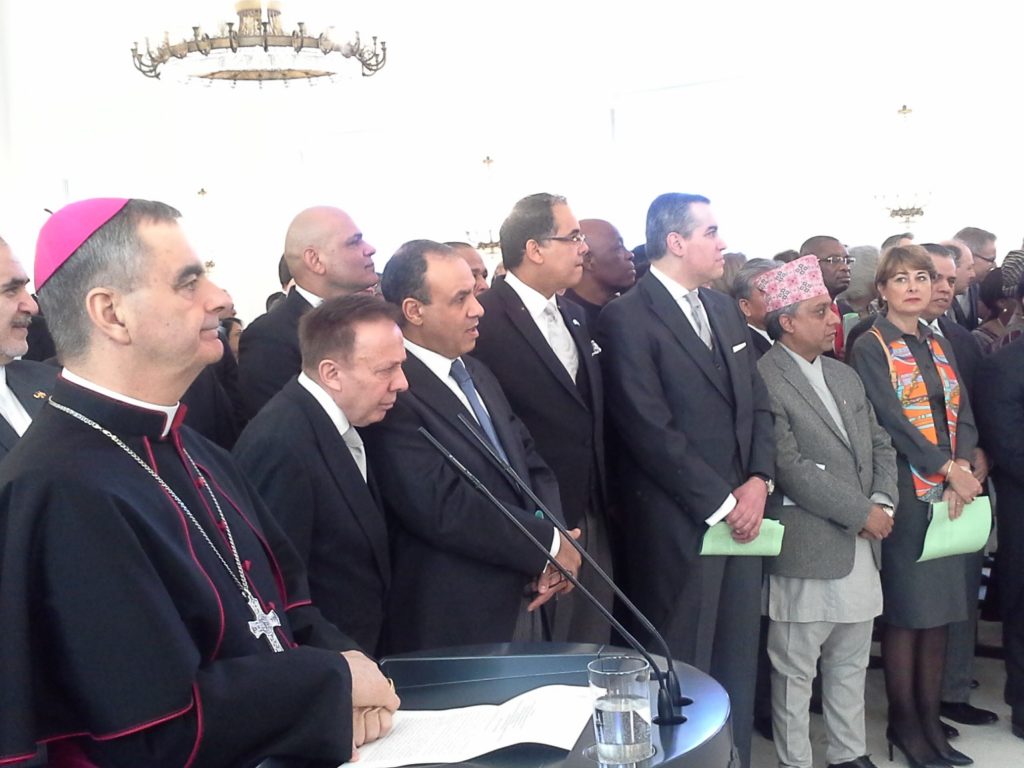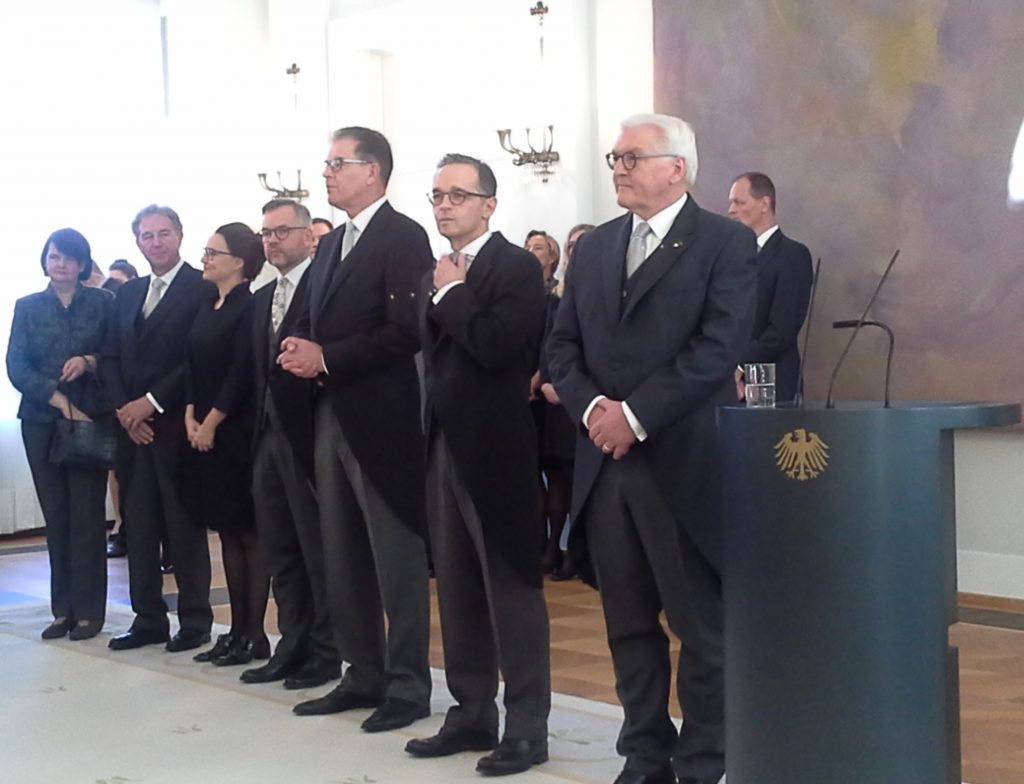The president of Germany, Frank-Walter Steinmeier has warned against the growing trend of nationalism in the world.

Addressing members of the Diplomatic Corps at his traditional New Year Reception in Berlin on Monday, President Steinmeier observed that “nationalism is ideological poison that is no less poisonous in a new guise.”
He noted that the concept of fairness seems to be increasingly falling by the wayside in international relations.
“When I read reports about international summits, then this zero-sum logic of ‘every man for himself’ or even worse, ‘everyone against everyone else’ has gained traction also in the realm of international relations.”

President Steinmeier said the belief that cooperation and clearly defined rules stand to benefit all those involved was being called into question ever more openly. “International organisations, or so it is claimed, hard the interests of their members. Nation states therefore must break free from the bonds of international institutions in order to defend their sovereignty.”
He stressed that free and sovereign states must establish common rules, they must define cooperation so that their actions do not culminate time and again in confrontation, animosity and, ultimately, war adding that “our world is more interconnected than ever before, when one country’s national interest can no longer be asserted without taking the interests of the others into account, this sort of cooperation is all the more important.”

He said that “we in Europe in particular will never forget this, but rather we will keep this memory alive and show that we have learned from our bloody history.”
Commemorating the end of the First World War, says president Steinmeier, was one of the most moving memories from the past year (2018).
“I was grateful to be the first German Federal President to attend the ceremony in London marking Remembrance Day. At the Cenotaph, I laid a wreath that bore the following handwritten message: ‘Honoured to remember side by side, Grateful for reconciliation. Hopeful for a future in peace and friendship’.”
The Doyen of the Diplomatic Corps, His Excellency Archbishop Dr Nikola Eterovic, Apostolic Nuncio, in his address noted that the reception was an opportunity to cast minds back on the previous year and to pay tribute to several events of significance.
The Apostolic Nuncio observed that during 2018, Germany and the rest of the world commemorated the end of the First World War (1914-1918) 100 years ago.

“The end of the “Great War” reminds us, unfortunately, of the fact that war and violence are a feature of many places around the world.
“According to a report by Caritas italiana (cf. Vatican News, 10 December 2018), there are 378 forgotten conflicts worldwide, of which 20 wars have increased in intensity, such as in Afghanistan, Syria, Yemen, Libya, Somalia, South Sudan and Ukraine.”
He thanked Germany together with the European Union and NATO for playing a positive role in helping to promote peace, especially through dialogue.
Archbishop Eterovic mentioned the plight of refugees and displaced persons as one of the most pressing issues in the world today as well as on the European continent.
“In the previous year, Germany received 174,000 asylum applications as of November. Moreover, Germany, together with 164 other countries, ratified what is known as the Treaty of Marrakesh, the UN Global Compact, on 10 December. The hope is that this Compact will be able to pave the way to the implementation of fundamental principles of secure, orderly and regular migration.”
Story: MIM & Melissa Sheridan, ANA Diplomatic Correspondent
